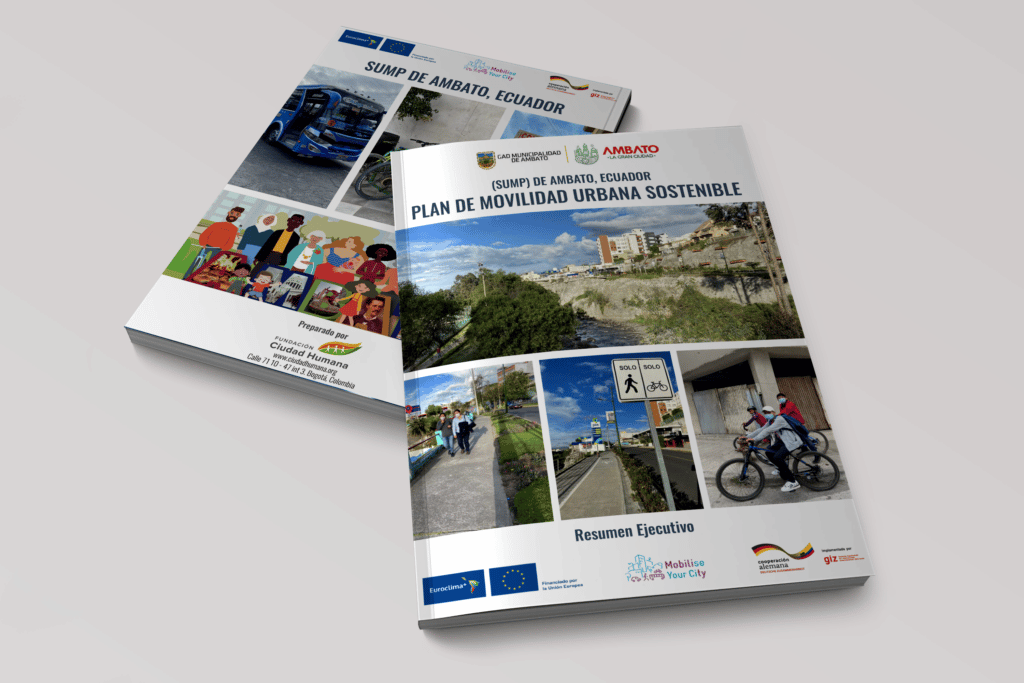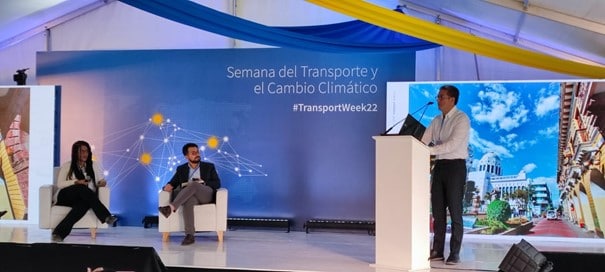
The city of Ambato presented its Sustainable Urban Mobility Plan (SUMP), an instrument that contains an action plan to promote changes in mobility, oriented towards sustainable modes that contribute to reducing emissions and improving people’s quality of life.
In the framework of the Transport and Climate Change Week, the Mayor of Ambato, Javier Altamirano, presented the executive plan of the SUMP Ambato to funders, banks and international experts.
Read the Executive Summary of the SUMP Ambato (in Spanish).

This project was supported for three years by GIZ through the EUROCLIMA+ programme. For its development, the MobiliseYourCity methodology was used, which provides a methodological framework and technical assistance that strengthens the development of institutional capacities and access to financing for the implementation of actions.
The SUMP Ambato is based on 3 structural axes: Clean Mobility, Energy Transition and Social and Environmental Equity. It contains 10 integrated packages of selected measures:
In turn, these measures explain the objectives, description, actions and time to be implemented, responsible entity, target audiences, measurement indicators and required budget, among others.
This action plan was designed based on a series of diagnostics (studies, surveys), participatory workshops, the creation of scenarios and the definition of indicators and goals. To ensure its adoption, political support from all stakeholders involved in mobility in the city is needed. At the same time, a socialisation of its contents will be carried out with the citizens.
You are currently viewing a placeholder content from X. To access the actual content, click the button below. Please note that doing so will share data with third-party providers.
More Information